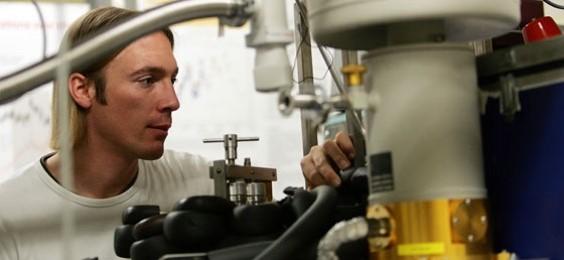Guaranteeing Swiss scientific excellence through internationality and home-grown talent

Swiss higher education and research institutions set out their priorities for 2017-2020 in a joint position paper focusing on excellence, young talents and knowledge transfer.
The promotion of education, research and innovation (ERI) is a priority for both the Federal Council and parliament. Excellent standards in education and research and strong dual-track education (VET system) are decisive factors in Switzerland's economic success story and affluence. In a joint position paper, Swiss higher education and research institutions, including the SNSF, consider measures in higher education aimed at maintaining Switzerland's good paper and economic positioning during the 2017-2020 ERI period. In addition, they have detailed their financial needs for this period in the joint paper and stressed that education, research and innovation in Switzerland depend on stable and sustainable growth.
Higher education sector: priorities for ERI period 2017-2020
The position paper, published on 2 June, lists the following priorities and targeted measures in the higher education sector during the coming ERI period:
- The primary goal is to maintain and enhance excellence in education, research and innovation. As a centre of knowledge, Switzerland should be able to compete with the best countries around the world. This requires continued international integration as well as recruitment of the best minds from all over the world.
- The higher education and research institutions aim to support young talents with academic potential - particularly home-grown researchers - more systematically by creating new incentives. The main focus will lie on earlier independence for researchers and on making research careers more plannable.
- They also intend to build more bridges between research, business and society. Knowledge and technology transfer have not been sufficiently promoted in Switzerland up to now. The SNSF and the CTI have set up the Bridge programme in order to better exploit the application potential of basic research results.
Targeted measures are also needed in infrastructure funding, energy research and overhead, along with innovations in education and teaching.
Guaranteeing international integration
In their position paper, the higher education and research institutions regretted the current threat to the international integration of the Swiss ERI institutions. Any controls on immigration in the future must adequately consider and prioritise the needs of the education, research and innovation sector with regard to international integration and mobility. Exclusion from Horizon 2020, the EU framework programme for research, as of 2017 would seriously jeopardise Switzerland's future as a centre for education, research and innovation.
Roundtable: demands for an education campaign
Representatives of the vocational training, higher education and research sectors discussed, in particular, the future of education in Switzerland at a roundtable. They looked at issues relating to vocational training as well as some of the targeted measures for the higher education sector in the 2017-2020 period. Everyone agreed that Switzerland is reliant on specialists and young scientists from abroad. However, it is not clear to what extent the staffing needs of businesses and research institutions can continue to be met in this way. Without foregoing the internationality needed to support a thriving research scene, Switzerland must attempt to help more upcoming specialists and researchers inside the country to realise their potential. The participants of the roundtable came to the conclusion that an education campaign is needed in all areas in order to help Switzerland master the economic and societal challenges it currently faces. The SNSF and the other institutions signed a position paper asking the political authorities to allocate the funds needed to achieve this goal.
- Förderung von Bildung, Forschung und Innovation in den Jahren 2017-2020: Gemeinsames Positionspapier der Schweizer Hochschulen und Forschungsinstitutionen (März 2015) (PDF, 478 KB) (PDF)
- Encouragement de la formation, de la recherche et de l’innovation durant les années 2017-2020: papier de position commun des hautes écoles et des institutions de recherche suisses (mars 2015) (PDF, 478 KB) (PDF)
- Gemeinsame Stellungnahme der Vertretenden der Berufsbildung und der Hochschulbildung in der Schweiz: Bildungsoffensive zur Stärkung von Wirtschaft und Gesellschaft (Mai 2015) (PDF, 763 KB) (PDF)
- Prise de position commune des représentants de la formation professionnelle et des hautes écoles en Suisse: un engagement fort dans la formation pour renforcer l’économie et la société (mai 2015) (PDF, 763 KB) (PDF)